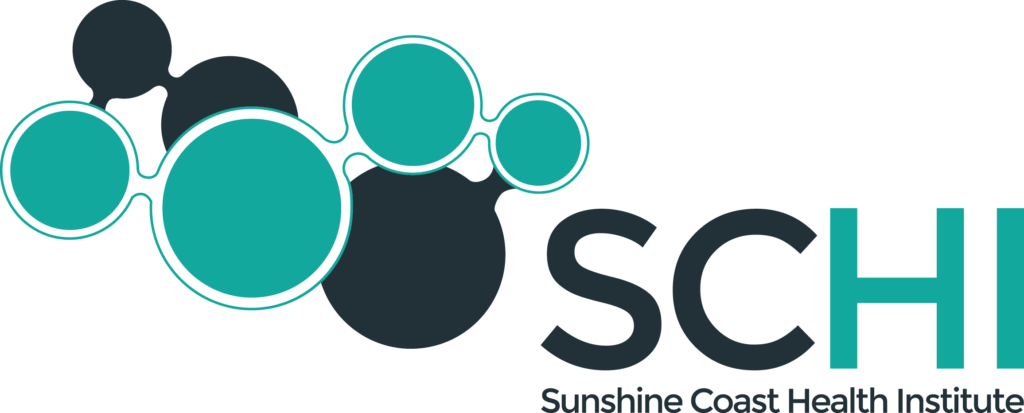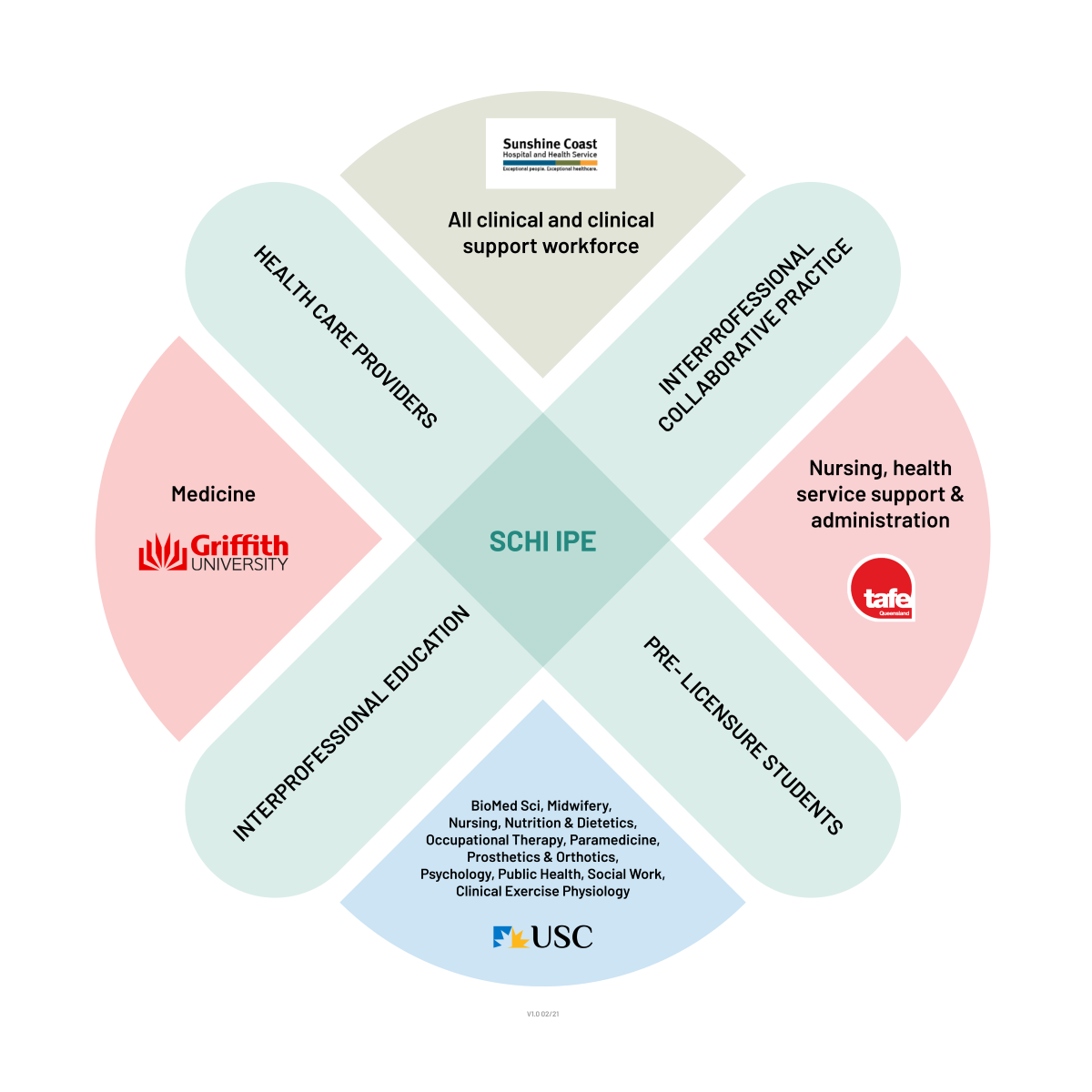Research
Creating an excellent suite of facilities to support the development of an active and successful research culture.
The collaborative partnership brings together Sunshine Coast Hospital and Health Service (SCHHS), USC, Griffith University (GU), and TAFE Queensland working together to achieve our mission to improve health and wellbeing outcomes for the region and beyond.
SCHI has an excellent suite of facilities to support the development of an active and successful research culture. The opportunities are many in research – education research, clinical trials research, basic and applied research.
Key goals include:
- identify research strengths and opportunities for research amongst the partners, including forming collaborative partnerships in areas of research strength
- integrate primary and clinical health services research activities to address regional and national health needs
- facilitate research collaboration by developing incentives for researchers to work together.
SCHI research facilities
The state-of-the-art SCHI research spaces are flexible spaces available for health-related research activities. The research facilities include a suite of Physical Containment Level two laboratories and a Clinical Trials Office Space.
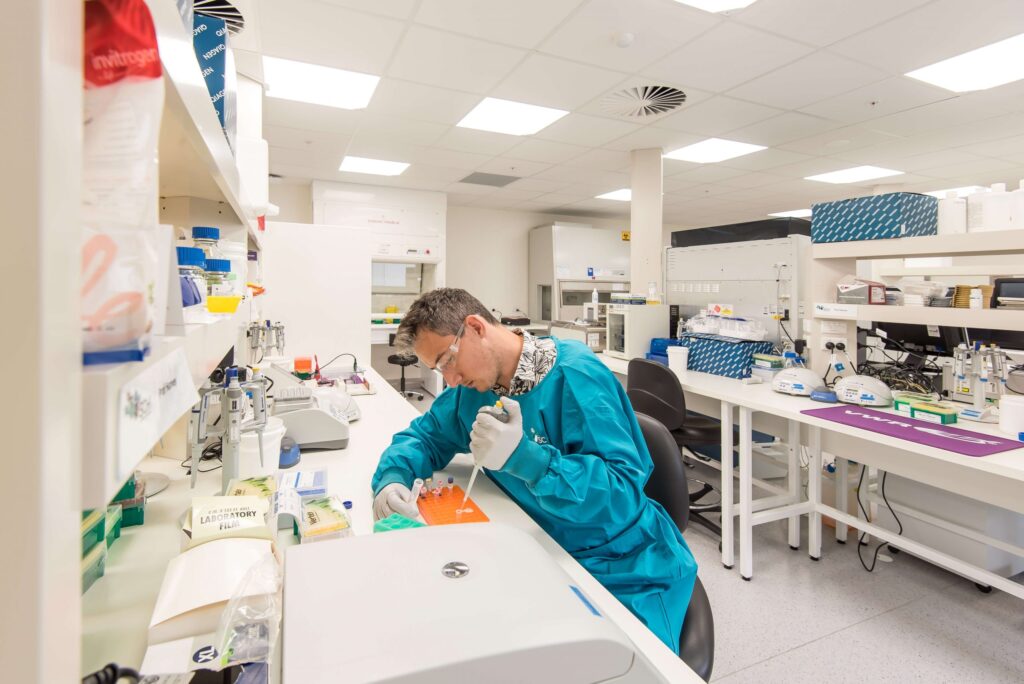
Laboratories
Located on the first floor of the Lakeside Building, there are three research laboratories, accredited to Physical Containment Level Two (PC2) intended for medium to long term research projects. With dedicated tissue culture, cold storage and preparation space, and brand new research equipment, the research laboratories have been designed and fitted out to meet the community’s current and future research needs. Necessary infrastructure and equipment are supplied by the institute and is centrally maintained.
Clusters of research excellence.
SCHI researchers have aligned into five clusters of research excellence.
Practice education in health
Lead: Professor Fiona Bogossian
This research theme recognises that quality education for clinical and non-clinical practice roles is the foundation for the provision of optimal health care for patients/clients/families and communities. Practice education in health research can shape health systems and is advanced by enquiry three subthemes:
• inter-professional education and collaborative practice
• workforce and career development pathways
• education technology.
Inter-professional education and collaborative practice
The focus of activity in this subtheme is to provide evidence for the effectiveness of inter-professional education (when two or more professions learn with, from and about each other) in facilitating and maintaining an effective collaborative practice in order to enable optimal health outcomes.
Workforce and career development pathways
The focus of activity in this subtheme is to identify and develop career pathways for health professionals (including all clinical and non-clinical health workforce) across the career lifespan. It links staff learning and development to other human resources and business activities, including strategic planning, workforce planning, and career development.
Educational Technology
The focus of activity in this subtheme is to strengthen the evidence, visibility, and impact of education technology, facilitate learning and improve performance by creating, using, and managing appropriate technological processes and resources. It encompasses research relating to simulation modalities and technology-enabled learning.
Infectious diseases and antimicrobial resistance
The Infectious Diseases and Antimicrobial Resistance (ID&AMR) cluster at SCHI is focused on biomedical research into all aspects of human infectious diseases. The cluster has several broad themes that represent our research strengths:
- better understand the presence, origin, and transmission of infectious diseases and their antimicrobial resistance (AMR) potential in the community – and hospital-acquired infections using cutting-edge approaches such as genomics, transcriptomics, and novel real-time PCR diagnostics
- enhance antimicrobial stewardship measures to enable more informed antimicrobial use both in our hospitals and the community, with a view to reducing the overuse/inappropriate use of antimicrobials to mitigate a return to the post-antibiotic era
- characterise chronic infectious diseases using metagenomic and metatranscriptomic techniques to unveil the ‘microbiomes’ (i.e. bacterial, fungal, viral, and archaeal communities) of complex diseases such as cystic fibrosis, chronic obstructive pulmonary disease, lung cancer, diabetic foot ulcers, spontaneous bacterial peritonitis in cirrhosis, and COVID-19
- optimise pharmacodynamics for combatting AMR infections to improve treatment regimens and antimicrobial efficacy, thereby improving patient outcomes and reducing current and future AMR burden.
Healthy ageing; primary and secondary prevention
Lead: Dr Chris Askew, SCUH Principal Research Fellow
Healthy Ageing is the process of developing and maintaining the functional ability that enables wellbeing in older age (World Health Organisation, 2015). The vision of the SCHI Healthy Ageing Research Cluster is to enhance function and wellbeing through innovative research that leads to better detection, prevention, and management of chronic and age-related conditions.
Through our SCHI partners and national and international collaborators, the Healthy Ageing Research Cluster brings together clinicians, health practitioners, health researchers, and research students from a wide range of health and scientific disciplines.
We place a strong emphasis on multidisciplinary approaches that are solutions-focused and that advance all aspects of human function, namely biological function (including organ function), physical function, cognitive function, and social function. This emphasis on function is consistent across our key research streams, which are:
- detection and evaluation
- prevention and care
- treatment and translation.
Our research is engaged with and informed by the needs of patients, consumers, and community groups. We support a wide range of experimental and clinical research studies that include people of all ages, particularly those with or at risk of chronic conditions. We actively partner with the health and aged care sectors to ensure that all of our work supports the translation and implementation of new knowledge into practice.
Maternal and child health
Current Lead: Dr Rachael Nugent
Previous Lead: Professor Jeanine Young AM
Maternal and child health research within SCHHS is focused on two key areas: optimal peripartum care and the first 2000 days. Our primary aim is to improve health outcomes for newborn infants, young children, and their families. Our translation objectives are 1) the promotion of healthy pregnancy and normal birth and 2) early identification of infants, children, and families with identifiable risk factors who receive timely, effective care to facilitate optimal outcomes. Current research activity is centred around five themes:
Maternity:
- promoting and facilitating normal birth including respectful maternity care and reducing maternal-infant separation.
- optimising outcomes for women with complex pregnancies and birth journeys.
- collaborative models of maternity care.
Child Health:
- optimal infant care to promote infants, children and their families to thrive.
- novel strategies to support families with vulnerabilities to reduce the risk of Sudden Unexpected Death in Infancy.
- multiagency approaches to infant death investigation and family support.
Optimising health service efficiency
Lead: Associate Professor Jo Wu, A/Professor in Nursing
The vision of this research cluster is to improve the health communities (local, state/national, global levels) by undertaking good quality of collaborative research that will inform the optimising efficient health services. This is done by:
- review current key research activities, including staff capacities
- build research collaboration capacity
- enable and enhance research quality.
Improvements:
- consumers/patients: advancing quality of care by engaging with consumers and experienced researchers to improve healthcare delivery
- staff: developing translational and collaborative health service research by empowering, valuing and mentoring clinicians in undertaking research projects of their interested areas
- leadership and management: supporting the improvements of collaborative research in organisational level.
There are four key areas of collaborations identified:
- end of life (EoL) shared decision making
- state-wide evaluation GEDI program
- drives to build/support a productive collaborative health research culture
- incorporating telehealth to support healthcare deliveries.
SCHI research membership

Join Sunshine Coast Health Institute’s research team and focus on the issues impacting our local community’s day-to-day lives. Inspired by passion, our community of researchers strive to improve the health outcomes of the region and beyond.
SCHI aims to promote, support, and profile all its researchers’ achievements to deliver high-quality research that has a real impact on our region. Our community provides opportunities for its members to collaborate, engage, and enrich our research culture.
To apply for membership applicants research must fall into one of the institute’s five research themes. Membership to SCHI is via an application process. To be considered as a member of SCHI, you must be able to demonstrate a research track record over the previous five-year period.
This can be achieved with one or more of the following metrics:
- being a recipient of a competitive research grant
- graduated and enrolled higher degree students
- published in peer reviewed journals.
Benefits of SCHI membership include:
- be permitted to use SCHI logo on all signature blocks and correspondence
- have access to SCHI facilities – including PC2 laboratories, clinical trials space, and office areas
- acknowledge SCHI on all publications in the author address list
- provide annual reports to SCHI Research Advisory Group on research output data (grant income, publications, and higher degree students enrolment and graduation)
- have access to internal grant schemes.
Application process
Membership to the SCHI is via an application process.
For information please phone
(07) 5202 4333
Further information
If you require additional information, or assistance with completing the form please contact us.
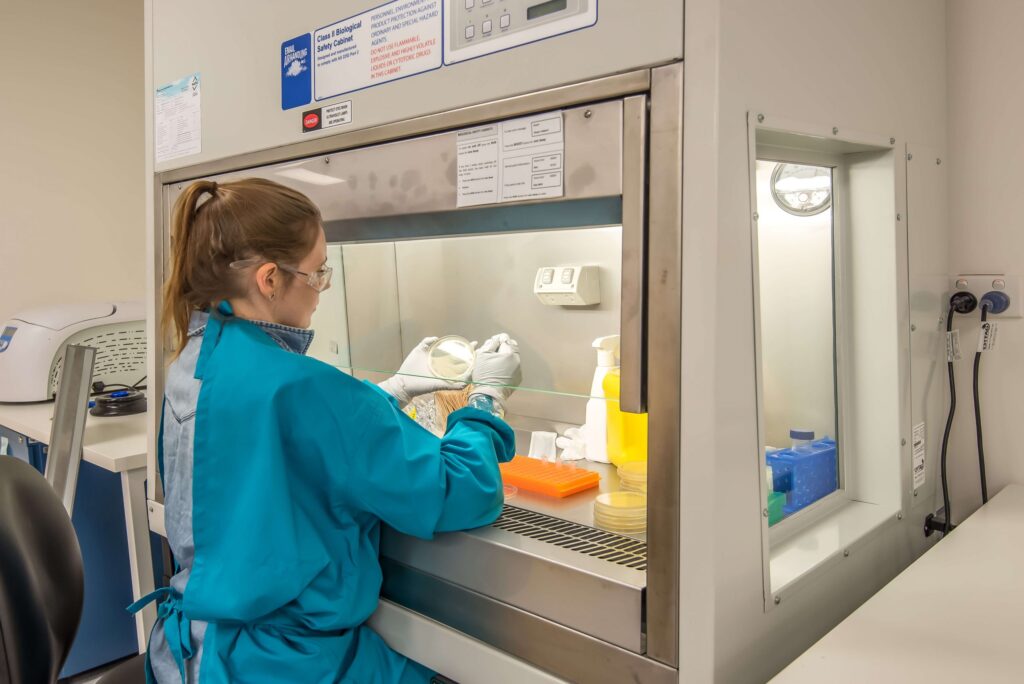
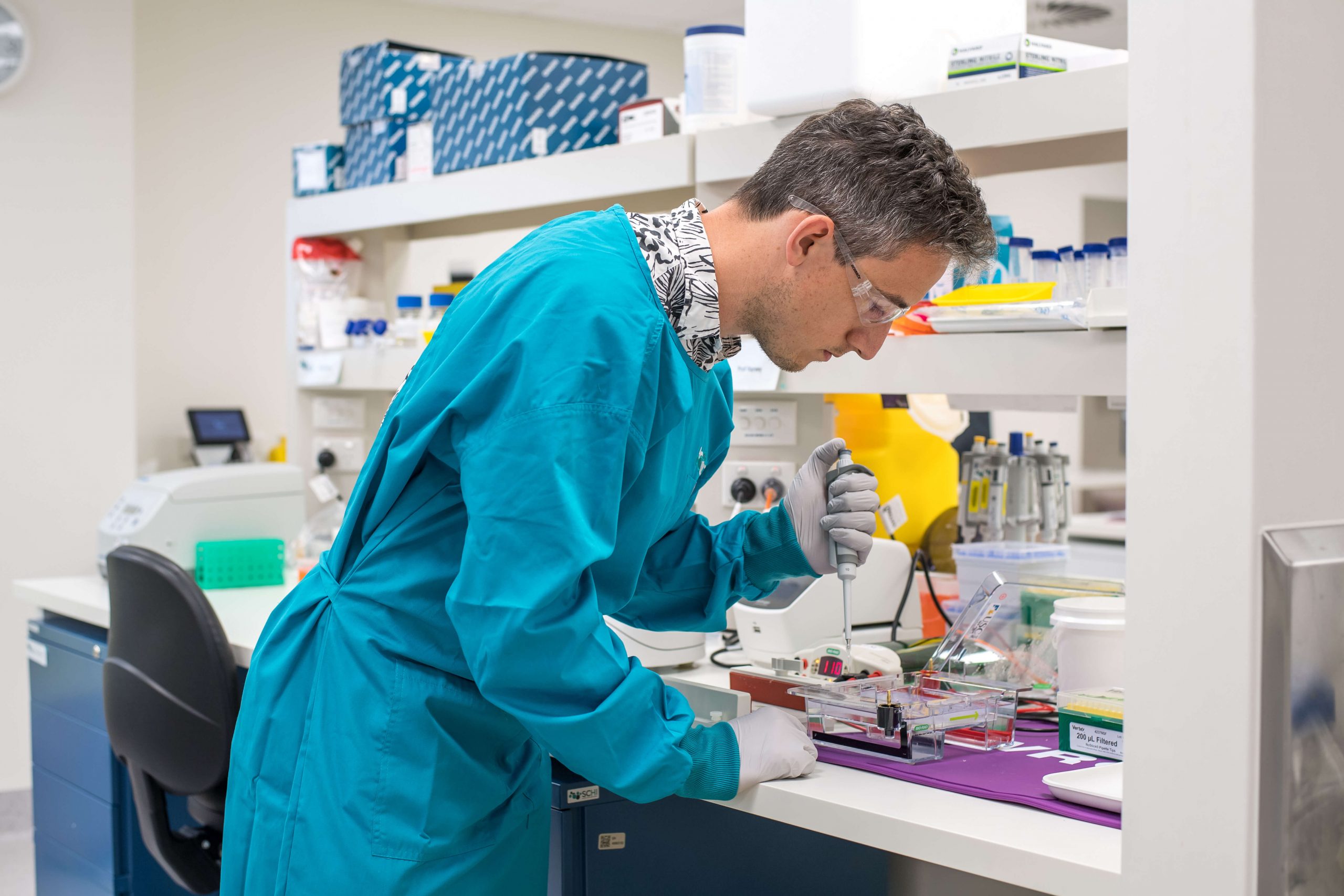
University of the Sunshine Coast clinical trials
A world-class clinical trials centre bringing advanced treatments and breakthrough therapies to the Sunshine Coast QLD and beyond.
Clinical trials are safe, ethical medical research studies that aim to find a better way to manage particular diseases. In partnership with medical experts and industry, USC is working with their communities to advance healthcare outcomes and improve access to cutting-edge medicine.
USC Clinical Trials was established in 2015 to improve access to breakthrough therapies and innovative treatments for our local community. The centre performs clinical trials in chronic diseases, vaccines, cancer, healthy volunteers, and medical devices from phase I to phase IV. USC operates two dedicated trial facilities at Sippy Downs (Queensland) and Morayfield (Queensland) with a network of partner sites spanning locations within and outside of Queensland.
